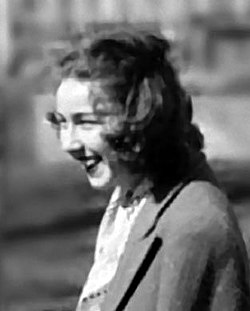Flannery O'Connor Quote
He said when he went to sell a man a flue, he asked first about that man's wife's health and how his children were. He said he had a book that he kept the names of his customers' families and what was wrong with them. A man's wife had cancer, he put her name down in the book and wrote 'cancer' after it and inquired about her every time he went to that man's hardware store until she died; then he scratched out the word 'cancer' and wrote 'dead' there. And I say thank God when they're dead, the salesman said; that's one less to remember.
Flannery O'Connor
He said when he went to sell a man a flue, he asked first about that man's wife's health and how his children were. He said he had a book that he kept the names of his customers' families and what was wrong with them. A man's wife had cancer, he put her name down in the book and wrote 'cancer' after it and inquired about her every time he went to that man's hardware store until she died; then he scratched out the word 'cancer' and wrote 'dead' there. And I say thank God when they're dead, the salesman said; that's one less to remember.
Related Quotes
About Flannery O'Connor
Mary Flannery O'Connor (March 25, 1925 – August 3, 1964) was an American novelist, short story writer, and essayist. She wrote two novels and 31 short stories, as well as a number of reviews and commentaries.
O'Connor was a Southern writer who often wrote in a sardonic Southern Gothic style. She relied heavily on regional settings and grotesque characters, often in violent situations. In her writing, an unsentimental acceptance or rejection of the limitations, imperfections or differences of these characters (whether attributed to disability, race, crime, religion or sanity) typically underpins the drama.
O'Connor's writing often reflects her Catholic faith, and frequently examines questions of morality and ethics. Her posthumously compiled Complete Stories won the 1972 U.S. National Book Award for Fiction and has been the subject of enduring praise.
O'Connor was a Southern writer who often wrote in a sardonic Southern Gothic style. She relied heavily on regional settings and grotesque characters, often in violent situations. In her writing, an unsentimental acceptance or rejection of the limitations, imperfections or differences of these characters (whether attributed to disability, race, crime, religion or sanity) typically underpins the drama.
O'Connor's writing often reflects her Catholic faith, and frequently examines questions of morality and ethics. Her posthumously compiled Complete Stories won the 1972 U.S. National Book Award for Fiction and has been the subject of enduring praise.
